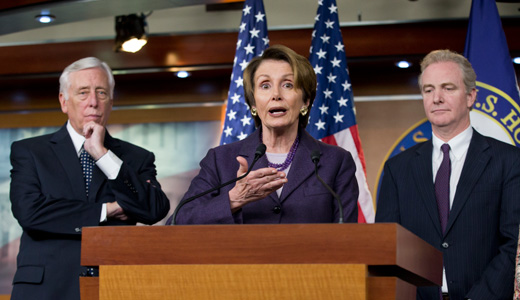
CHICAGO – Regina Elbe has a Bachelor’s degree and 15 years solid experience working as an administrative assistant at a bank office in the Loop. She has filed 112 job applications since losing her job June 15 and hasn’t been able to find a new job.
Elbe, 36, lives in the Bridgeport neighborhood here and, at a coffee shop on South Halsted St., said today that she lives with her brother who works part time at a Subway sandwich shop in town and her mother who collects a small Social Security check. Elbe, whose unemployment benefits run out this month, said, “I was once the main breadwinner but now we are not really able to make ends meet.”
The Emergency Unemployment Compensation program, which has provided support to millions who lost their jobs during the recent economic hard times, is set to expire Dec. 28, 2013.
Job openings and labor turnover data released this morning by the Bureau of Labor Statistics showed that the ratio of job seekers to job openings remained in October at 3 to 1, which is about equal to the worst month of the early 2000s downturn. It means that for two out of every three job seekers, there are no jobs available, no matter what they do.
To make matters worse, since the beginning of the recession, seven states have cut their jobless benefits to less than 26 weeks, which is the level where those benefits have been since the 1950’s.
Unless Congress acts there will be a cutoff of unemployment checks to 1.3 million unemployed people, crushing them under a double blow in the states that have already cut benefits. Those states have cut anywhere from one to 14 weeks of benefits and include Georgia, Missouri, North Carolina, South Carolina, Illinois and Arkansas. Some states have also made it more difficult to qualify for benefits and have decreased the size of their checks as well.
In addition to the 1.3 million who would lose their benefits immediately, the ending of federal benefits would affect 3.5 million more jobless Americans by the end of 2014. That, according to President Obama, is how many unemployed people are still expected to be job hunting after their state benefits expire. The president used his weekly address last Saturday to demand that Congress extend the benefits.
“For many families this can be the difference between hardship and catastrophe. Last year alone it lifted 2.5 million people out of poverty, and cushioned the blow for many more,” the president said. Obama also said that failure to extend the benefits would “harm the economy itself. Unemployment insurance is one of the best ways to boost the economy,” he said.
Republicans, as expected, don’t see it the way the president does.
Sen. Rand Paul (R-Ky) argued that unemployment benefits shouldn’t be extended for the jobless, saying they “do a disservice” to the unemployed.
“When you allow people to be on unemployment insurance for 99 weeks, you’re causing them to be part of this perpetual unemployed group in our economy,” he said, ignoring completely the fact that job seekers overwhelmingly outnumber the jobs available.
Democrats in the Senate and the House have introduced bills that would extend the federal benefits for another year.
The Congressional Budget Office estimates that a one-year extension of jobless benefits would actually amount to a full-fledged jobs program, adding some 200,000 jobs to the economy as a result of the stimulative effect of the money in people’s pockets.
Photo: House Minority Leader Nancy Pelosi, D-Calif., joined by Minority Whip Steny Hoyer, D-Md., left, and Rep. Chris Van Hollen, D-Md., right, the ranking member of the House Budget Committee, to discuss the unfinished work of Congress at a news conference on Capitol Hill in Washington, Dec. 5. J. Scott Applewhite/AP












Comments